“Gardening is balm to my soul”
Andreas, your own vegetable garden is still relatively new. But we know that you’re very passionate about it. What exactly is it that you love about being here?
I think gardening was a passion I was born with. Even as a child, I loved doing it. After reunification, when my peers were racing to get their hands on “Bravo” magazine, I subscribed to “Mein schöner Garten”. Seeing something grow and thrive helps me literally to keep both feet on the ground. Digging in the soil, being at one with the elements, is balm to my soul. These days, I feel like it’s a privilege to be able to cultivate land. We humans have been doing this for millennia – maybe it’s just something that we’re hardwired to do.
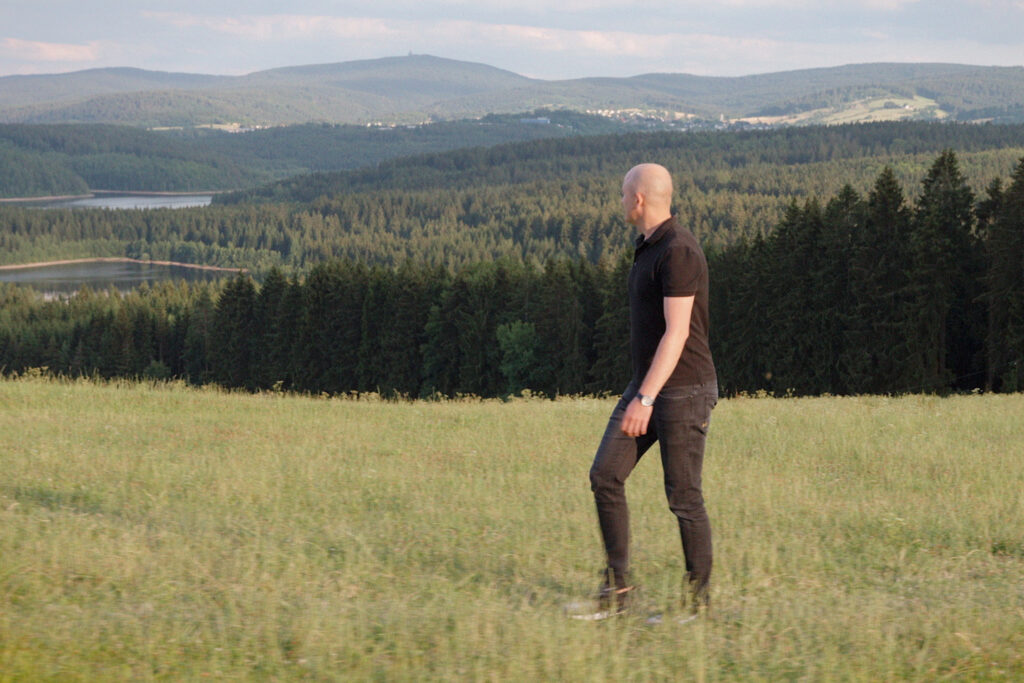
Do you learn things in your garden that you can apply to your work as co-CEO at MÜHLE?
I believe that your personality informs everything you do. Patience, for example, isn’t my strong suit, but gardening forces me to be patient.
It’s the beginning of April. What’s going on in your garden right now?
The fruit trees have just been pruned. I couldn’t put it off any longer. After all, this has to be done before the trees bud.
How many kinds of fruits and vegetables are growing in your garden?
That never stays the same. I try to grow a wide variety of types. For example, there are hardly any beds in which only one variety grows; it’s always a hotchpotch. The plants need different nutrients at different times, so if you mix them, they grow more strongly and are more resistant to pests, which consequently never attack the whole bed. Some plants also self-seed or re-emerge from one year to the next. This is a consequence of climate change, in this case a positive one. In the Ore Mountains, you used to have to replant everything every year because nothing survives the winter.
Do you have enough produce to feed your family?
In the summer months, definitely! We have so much that we don’t buy vegetables and we give a lot away.
You’re someone who has high standards – are you a perfectionist in the garden?
No, that’s not me at all. I take my lead from the principles of permaculture, so that’s far from perfectionism.
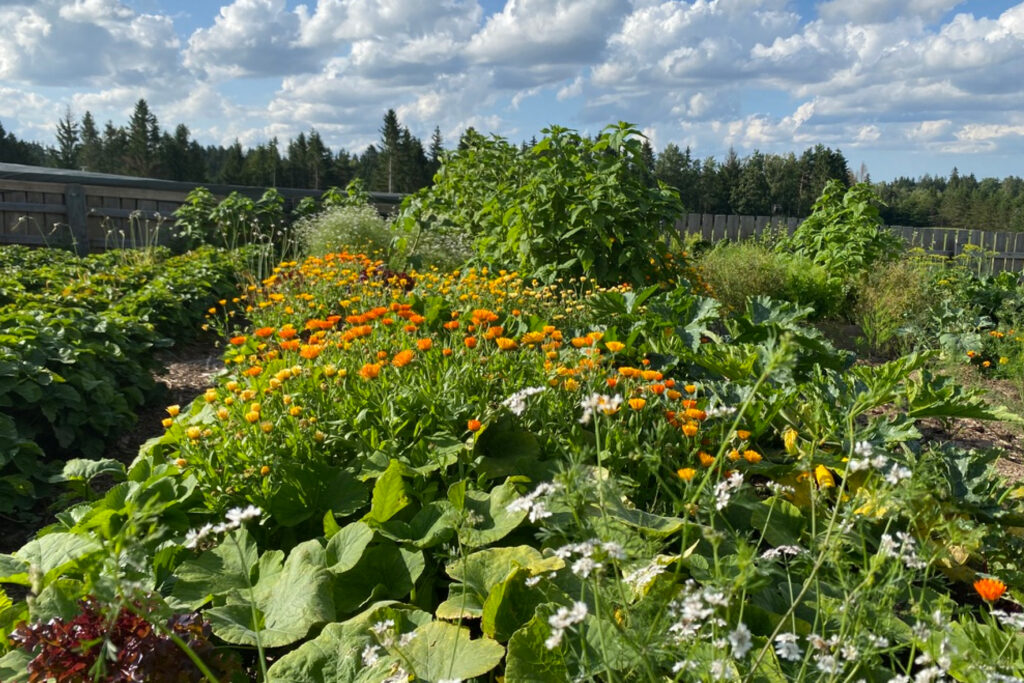
What does that mean exactly?
The aim is to keep everything in a cycle. You always plant mixed cultures. The top layer of soil is covered with a layer of mulch so that microorganisms can become established there and turn the compost into good soil. Beyond that, you use only organic fertilisers.
Is the garden a family project or just yours?
My wife takes care of the strawberries, and that’s a large part of the garden. The kids often stop by, jump around and help themselves to this and that, but usually they don’t stay long. However, they often show the garden to their friends – and they’re very proud of it.
How much time do you spend here?
It never feels like a lot of time because I enjoy it so much, but it adds up. For example, at lunchtime, when I eat at home – I live not far from the company – I usually go and take a look when I’m done. But a little look-see quickly turns into three quarters of an hour.
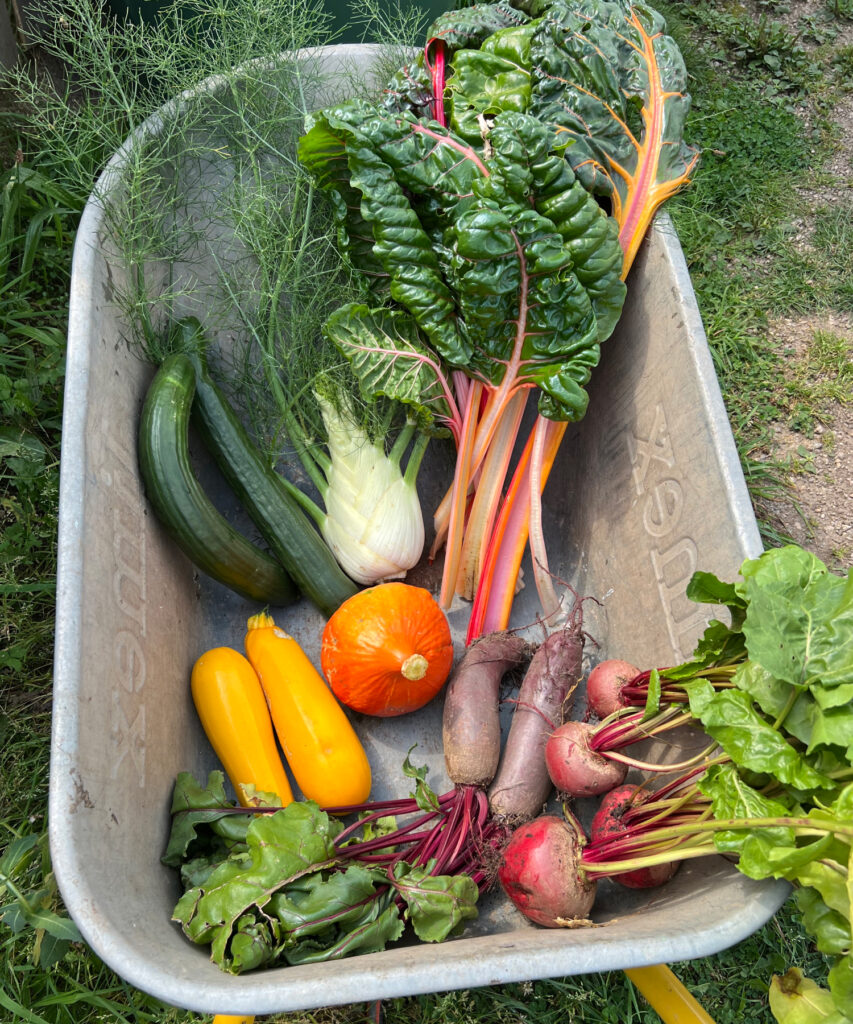
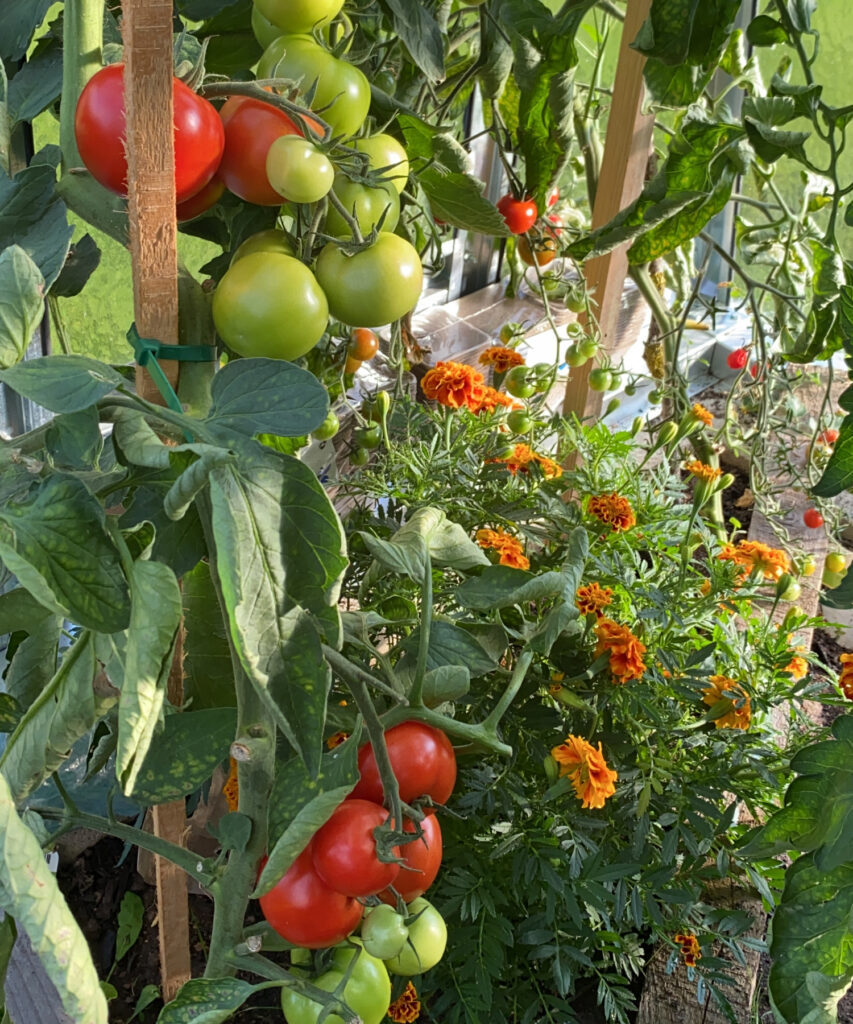
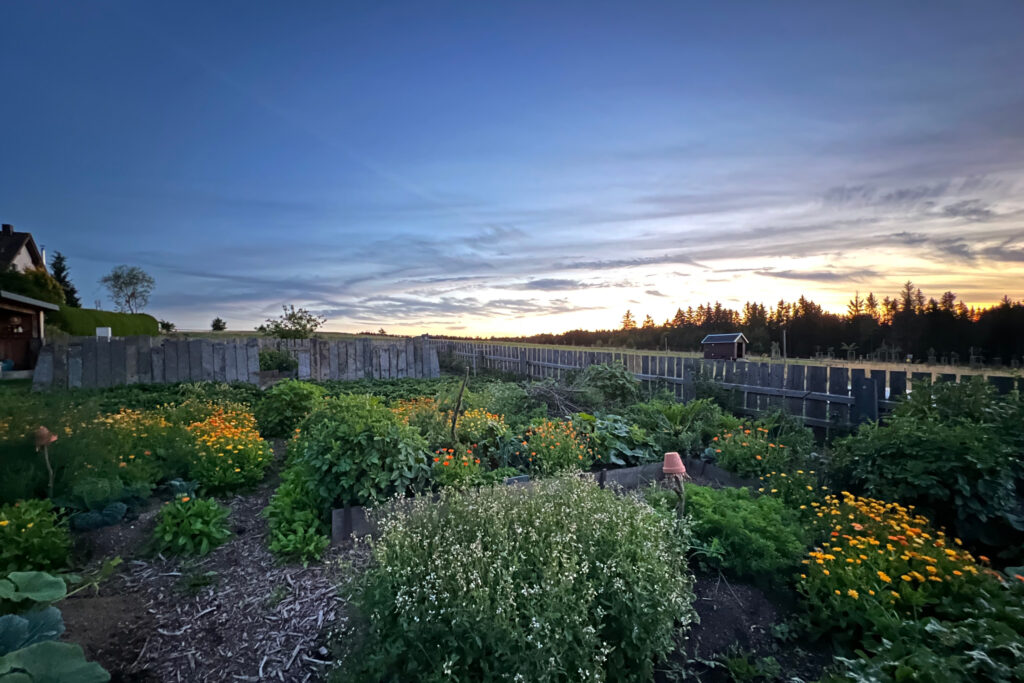
What exactly do you do then?
I just survey and enjoy the garden at first. And then I water plants here, pull weeds there, tie up the beans there. I never come out with clean hands.
You have a knack for tech and design. Are accessories and tools important to you?
You can’t do without certain tools, but I basically take a relaxed approach. What you definitely need is a good pair of secateurs, especially for fruit trees, because the cut has to be clean and not frayed around the edges. Other than that, I’m a big fan of a hoe and spade – you can get quite a bit done with them.
What are you most proud of in your garden?
My dream is to cultivate things that don’t actually grow here in the Ore Mountains. Cauliflower, for example. You wouldn’t have thought in the past that it would grow so well here. But lo and behold: here it is.
